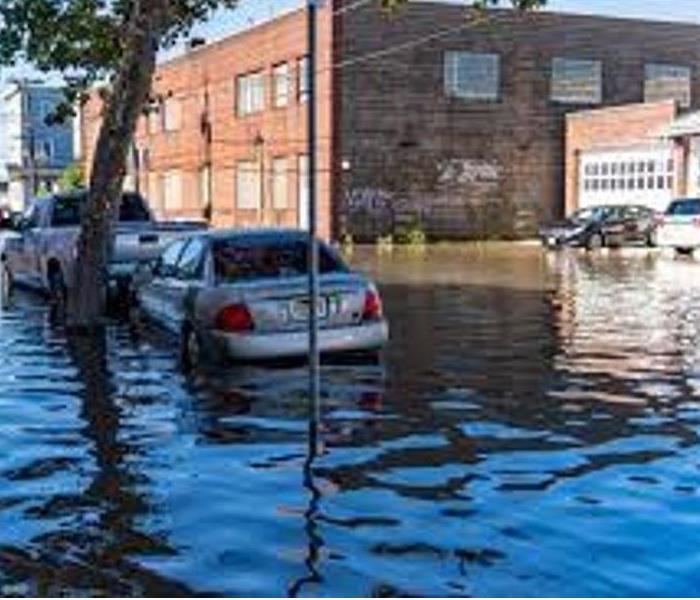Be Prepared for a Flash Flood
9/29/2021 (Permalink)
Floods are among the most common and devastating types of natural disasters. They can happen in a wide variety of places and no two floods are exactly the same. Some happen gradually, during a long period of snow-melt or rain. Others, like flash floods, can occur extremely fast, seemingly without warning. Small creeks or dry stream beds can instantly overflow with water, acting as conduits for large floods. Although nearly everyone should prepare for floods, no matter where you live, it is especially important to be prepared if you live near water, dams, or in a low-lying areas.
Here are some tips to help you prepare for a flood:
- Use check valves to keep floodwater from flowing backward into your home’s drains.
- If you live in a high flood-risk area, elevate your furnace, electric panel, and water heater.
- Consider getting flood insurance, since property insurance generally does not cover damage from floods.
- Have water barriers prepared that you can deploy around your home to keep water from entering it.
- Prepare a home emergency supply kit, including an emergency radio so you can get updates from authorities.
- Use waterproofing compounds to seal your basement walls. Even if your house does not flood, the possibility exists that the ground around your house could become saturated, and this groundwater will likely attempt to enter your basement. Install a reliable battery back up sump pump or water powered sump pump to help keep your basement dry.
Be prepared to evacuate:
In the event of evacuation, how will you leave?
- Consider where you would go – family or friends’ houses in different towns, hotels, or public shelters. Learn multiple ways of getting to these places.
- Have your family agree on places to meet in the event of an emergency. Chose a place in your neighborhood and another outside of it.
- Plan on how to take care of pets in an emergency situation – you can take them with you, but plan ahead, since they may not be allowed in emergency shelters.
- When you leave, lock your house, and bring your emergency kit. .
- As you evacuate, watch out for floodwater. If possible, avoid the water, since it could contain contaminants or the risk of electric shock from downed power lines. In general, stay away from damaged power lines to avoid risk of electrocution. If you encounter moving water, avoid walking through it if you can – moving water can be much more powerful than it appears.
- Don’t return home until the authorities have declared that it is safe, even if the flooding has receded, since roads and buildings could be damaged and drinking water unsafe. As a general rule – remain extra cautious even after the flood water has dissipated.
- Stay informed as much as you can, via TV, radio, internet, or weather radio. Keep in mind that authorities may not necessarily provide continuous updates, but it is still a good idea to check regularly for information and instructions.





 24/7 Emergency Service
24/7 Emergency Service
